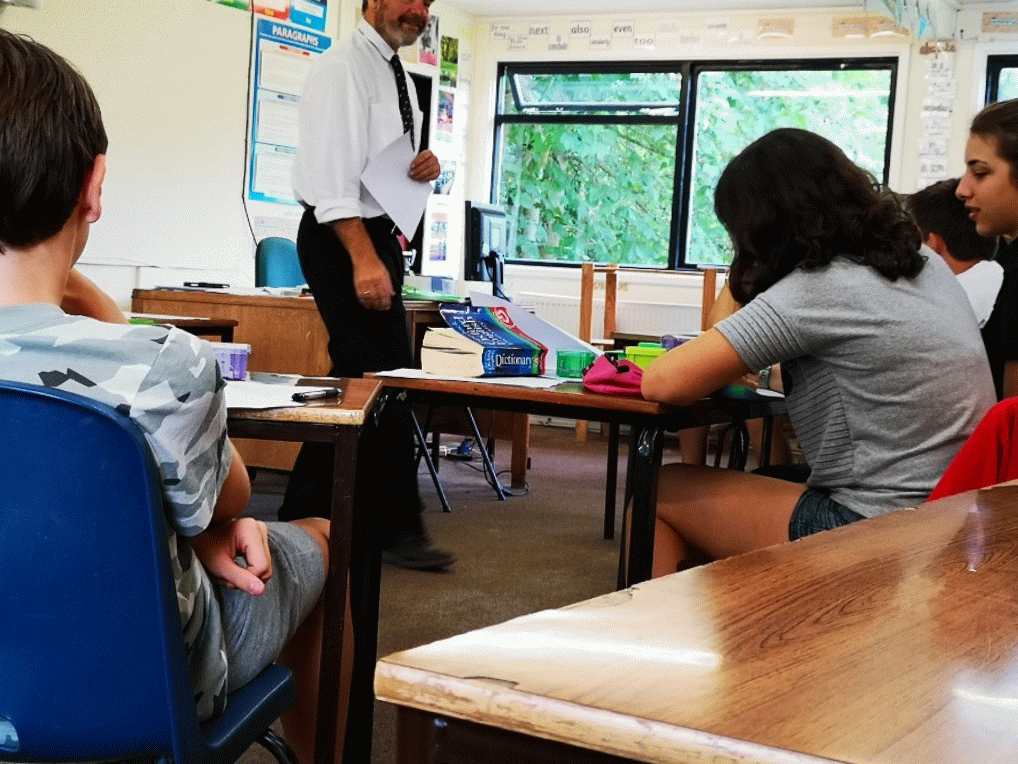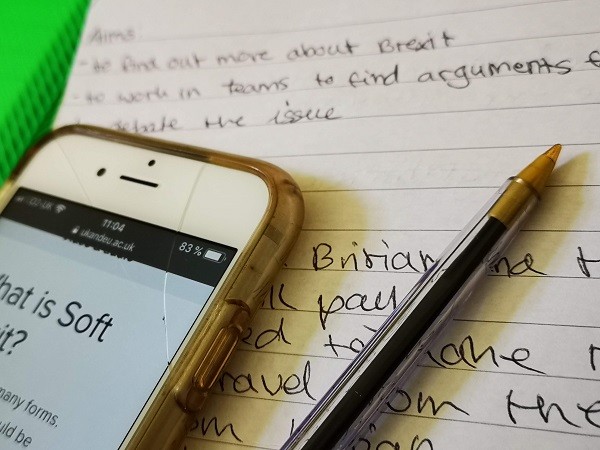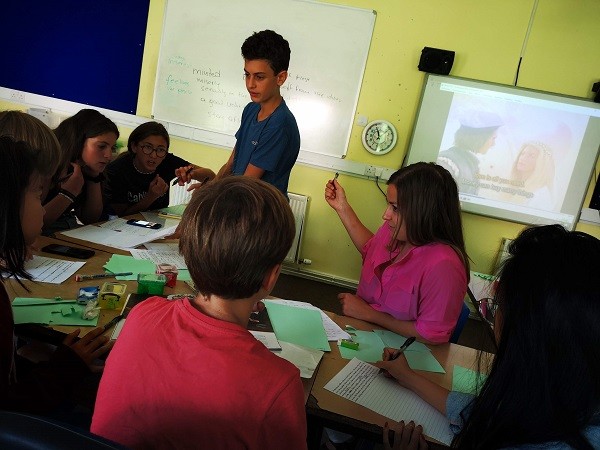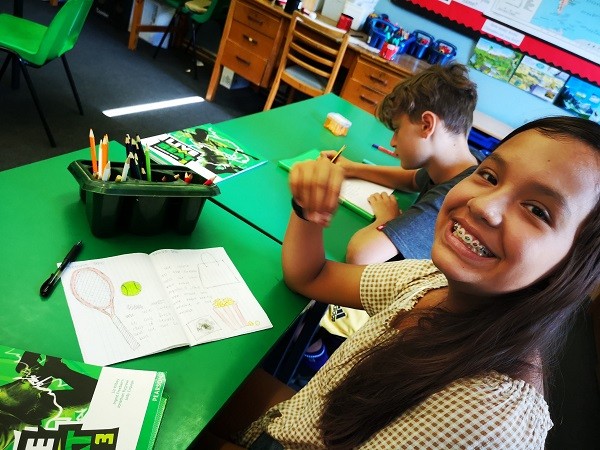Core English
Come on – follow me: let’s go on a tour of the classrooms and see what is going on.
Collaborative learning
Debate on the Olympics
Who wants to listen to a teacher all day? Who wants to listen to any one person all day? No one. We like to put students at the centre of learning. Part of this involves students learning to take responsibility for their own learning by learning to reflect on their own learning and provide feedback to each other. In this lesson, C1 level Ilias chairs a debate on the Olympics and provides incredibly useful feedback to his classmates: winning an argument depends not only on the quality of your argument, but also on… well Ilias explains it best:
Transforming texts

Another B2 class read a story analysed the themes and then transformed it into a radio play. Transforming text from one genre into another involves subtle and sophisticated language choices: a great challenge for our ambitious young B2 students.
Mobile phones aren’t always bad

Mobile phones ‘get a bad press’ and no one would deny that addiction to smartphones is a problem for all of us. On the other hand, we can argue that the problem is not the technology, but how we use the technology. A big plus of mobile phones is that they allow instant access to a wealth of information. Research is a key 21st century skill that students need to master. At More Than English we know that traditional T/F or gap-fill reading exercises can be useful when it comes to measuring basic comprehension. However, we prefer to place more emphasis on students reading to research information which they then synthesise to back up their arguments in debates, presentations, reports and essays.
Shakespeare taster

Can B1 students engage with Shakespeare? They can we our teacher Zoi. This class have been exploring the story, themes and characters in a simplified version of The Merchant of Venice.
Marrying the academic and the activities programmes

You know what they say: ‘practice makes perfect’. This idiom is never truer than in the case of language learning.
Here an A2 class are writing diaries. They learn vocabulary about an activity such as, in this case, tennis. They play tennis for real and so meet the vocabulary again. Finally, they do their diary and so meet the same language again. We know that meaningful repetition is at the heart of assimilating new language including vocabulary: summer school provides the perfect context for marrying learning in the classroom, with real world experience followed by further consolidation back in the classroom.
A picture paints a thousand words:
Such a busy morning of learning. But there was also Get Ahead in the afternoon including the Leadership final Model United Nations debate plus something called… Lip-sync in the evening. Want to know how our lovely students welcomed a small Italian boy wanting to join the show when he visited with his mum? You’ll just have to click the video to find out:


